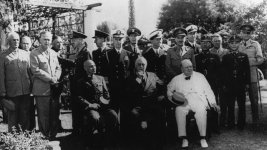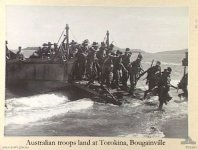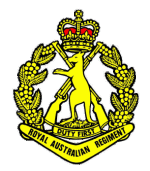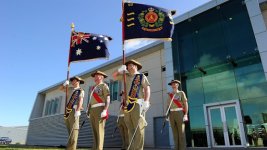jazzeum
Four Star General
- Joined
- Apr 23, 2005
- Messages
- 38,910
19th November 1863, Gettysburg Pennsylvania.
In one of the most famous speeches in history President Abraham Lincoln delivers an address to a large crowd in the newly consecrated cemetery at Gettysburg, site of one of the most famous battles in history and a turning point in the American civil War four and a half months earlier. The President spoke for just over two minutes;
Four score and seven years ago our fathers brought forth on this continent a new nation, conceived in liberty, and dedicated to the proposition that all men are created equal.
Now we are engaged in a great civil war, testing whether that nation, or any nation, so conceived and so dedicated, can long endure. We are met on a great battle-field of that war. We have come to dedicate a portion of that field, as a final resting place for those who here gave their lives that that nation might live. It is altogether fitting and proper that we should do this.
But, in a larger sense, we can not dedicate, we can not consecrate, we can not hallow this ground. The brave men, living and dead, who struggled here, have consecrated it, far above our poor power to add or detract. The world will little note, nor long remember what we say here, but it can never forget what they did here. It is for us the living, rather, to be dedicated here to the unfinished work which they who fought here have thus far so nobly advanced. It is rather for us to be here dedicated to the great task remaining before us—that from these honored dead we take increased devotion to that cause for which they gave the last full measure of devotion—that we here highly resolve that these dead shall not have died in vain—that this nation, under God, shall have a new birth of freedom—and that government of the people, by the people, for the people, shall not perish from the earth.
Rob
One of the great speeches in the annals of history. The trend at that time at these types of occasions was to make speeches that went on for hours. Thus, Edward Everett, who is now generally forgotten but one of the great orators of the age, made a speech two hours in length. Everett later wrote to Lincoln that "I should be glad if I could flatter myself that I came as near to the central idea of the occasion, in two hours, as you did in two minutes." High praise indeed.
The speech was criticized in some quarters, particularly the democratic press, because of its emphasis on the Declaration of Independence and its ignoring of the Constitution.
Garry Wills has written a great book on the speech, for those who may be interested.






